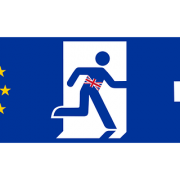How has Brexit Impacted the UK Economy?
Brexit negotiations or speeches are hardly out of the news these days, but how much has actually changed since the referendum? It will be some time yet before an agreement is made and the UK officially leaves the European Union, however we’ve already seen some significant changes in the economy and how global businesses view the UK trade.
It’s hard to give an overall view of whether in general the UK economy has improved or got worse since we started the process of divorcing the EU. Many reports focus on the value of the pound but there is more to measuring the economy than sterling markets. The state of the economy can affect house prices, employment levels and the risk factor for banks to lend money. If business growth slumps because of a lack of access to finance, this could also have disastrous consequences as we exit the union.
Let’s take a look at some of the most recent economic impacts of Brexit.
Pound devaluation
The pound has continued to slump against both the euro and the dollar – it’s currently at a three decade low against the US dollar. A fall in the pound isn’t noticeable to everyone just yet, but it is bad news for motorists or frequent fliers, and means imported goods increase in price. However, the weakness in the pound can have some benefits for UK exporters.
Inflation rise
There has been a steady rise in inflation ever since the leave vote was announced last June. This is because the pound’s sharp drop has made imported goods more expensive. In May 2017 inflation hit a four-year high at 2.9% which is never good use for consumers. Prices are rising faster than wages, which means households are under more pressure and there could be a rise in personal debt.
Trading and employment
Unemployment is at its lowest levels since the 1970s, so it seems as if Brexit is yet to have a negative effect on the jobs market. However, leave campaigners who had strong confidence in the strength of the UK’s exports have not been proved right. The nation’s trade performance has worsened,
even though the weaker pound has boosted some UK exports. Currently imports are rising and exports are falling as the UK struggles to push UK-made goods abroad.
Of course negotiations are still under way and the final deal, once agreed, will have the most impact on the economy. It’s important for British businesses to stay up to date with current developments and prepare for a future outside of the EU.






